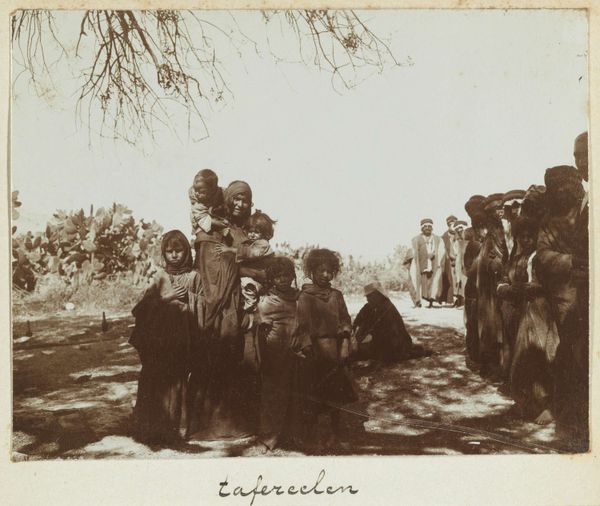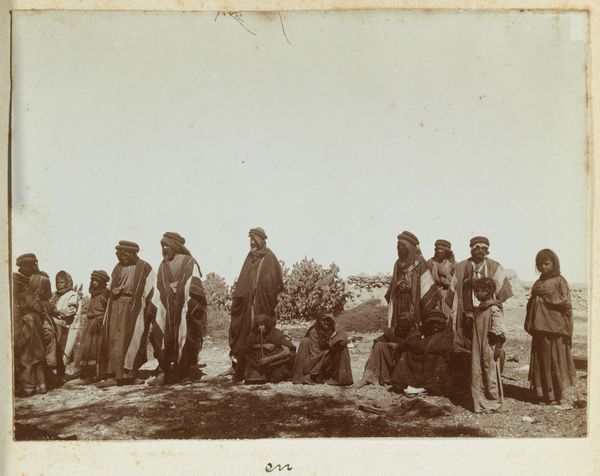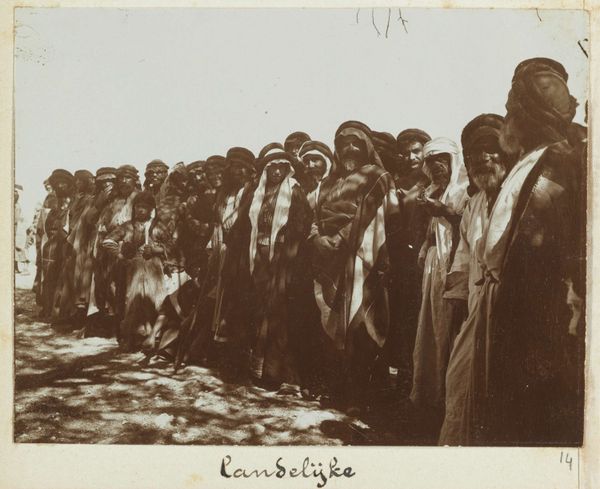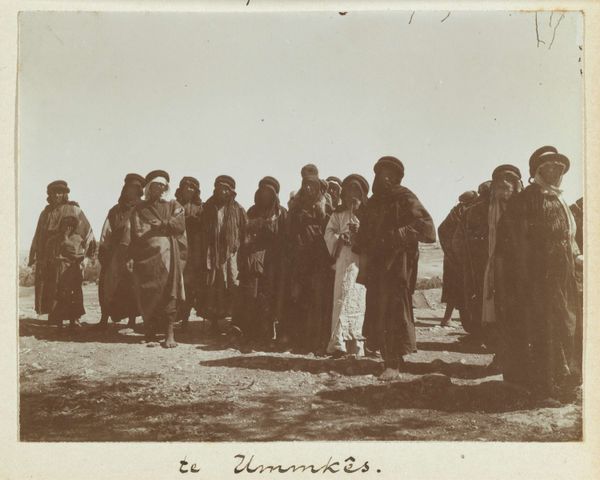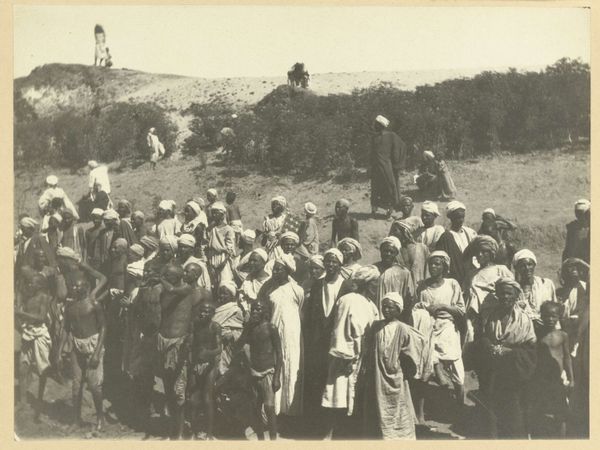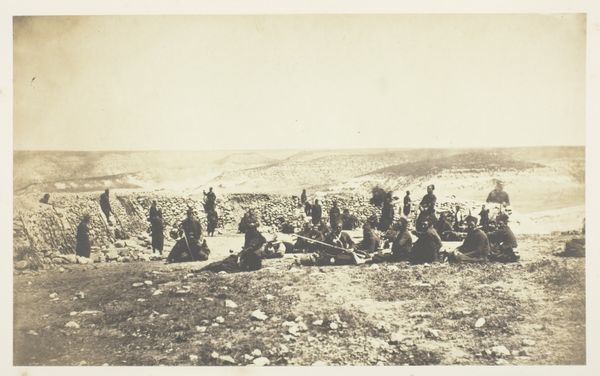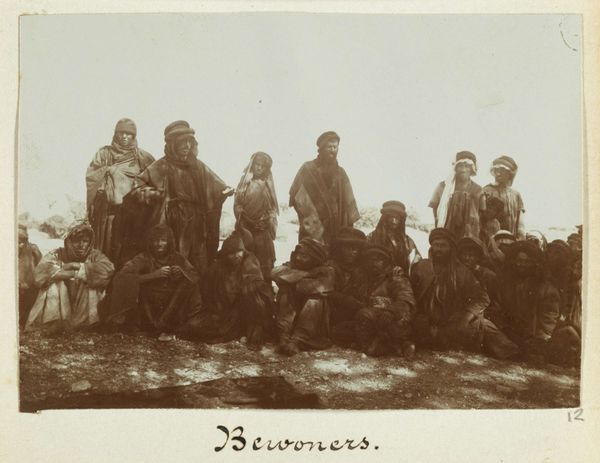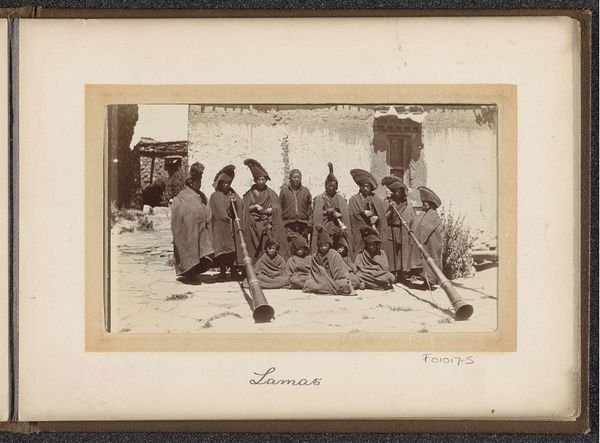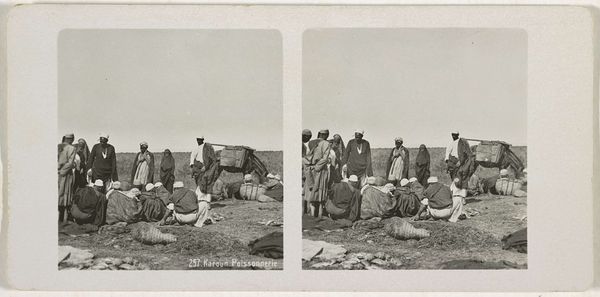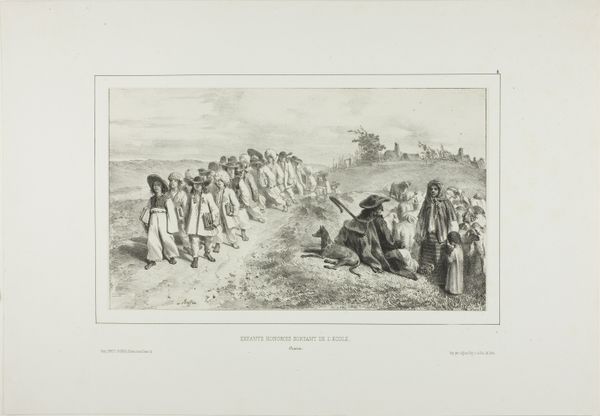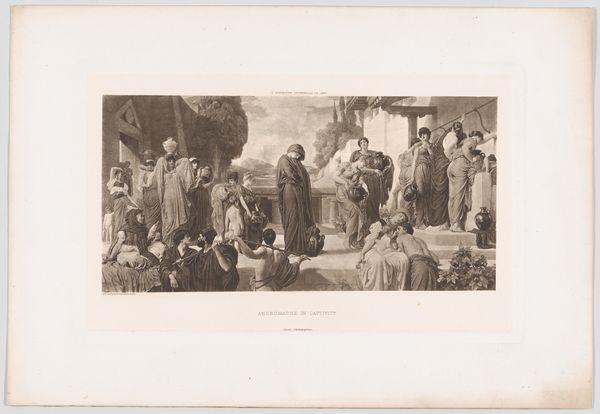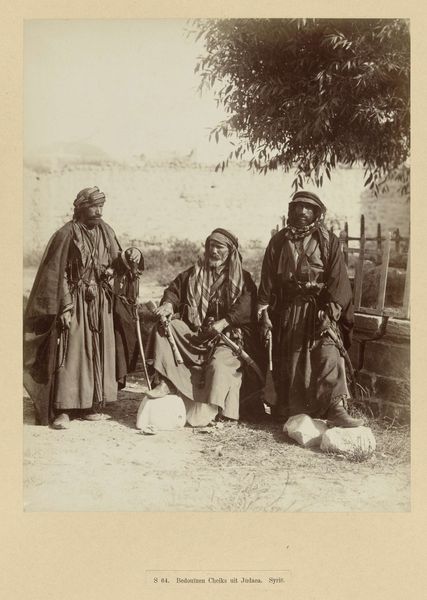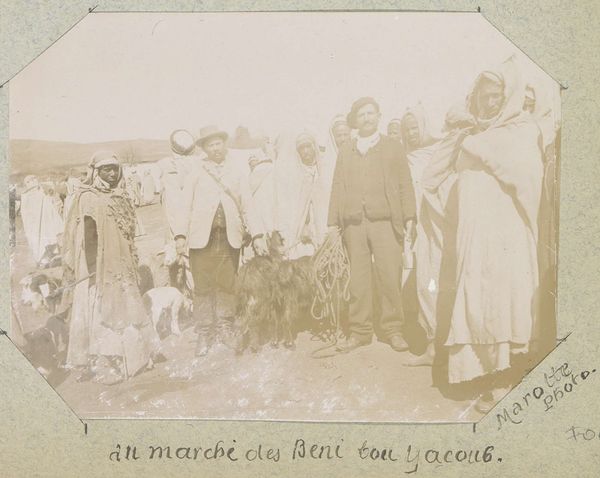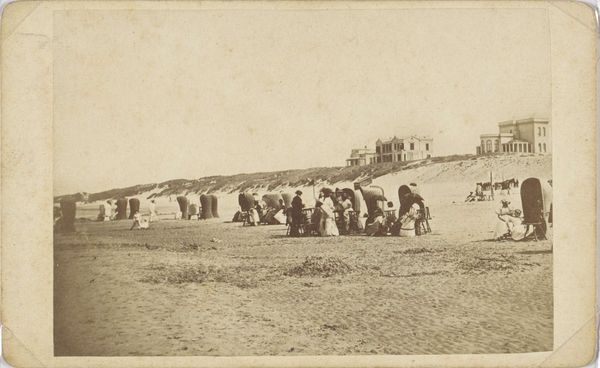
gelatin-silver-print, photography, gelatin-silver-print
#
gelatin-silver-print
#
photography
#
orientalism
#
gelatin-silver-print
Dimensions: height 83 mm, width 109 mm
Copyright: Rijks Museum: Open Domain
This photograph of residents of Umm Qais, Jordan, was taken by Johannes Lodewijk Heldring sometime between the late 19th and early 20th centuries. Photography in this period involved complex chemical processes. Glass plate negatives had to be carefully prepared, exposed, and developed, all before a final print could be made on paper. This image, sepia-toned, speaks to the laborious darkroom techniques of the era, where light and chemicals were manipulated by hand. The act of photography itself was also freighted with social significance. Heldring, a Westerner, captured this image of local people, turning them into subjects for the European gaze. The photograph embodies the dynamic of power inherent in early ethnographic documentation, a visual echo of colonial encounters and the uneven distribution of labor and representation. Consider the amount of work involved in creating this image. The labor of the photographer, but also the largely unacknowledged presence of the people depicted. Photography, like many forms of making, is a collaboration, a record of social relations as much as a singular artistic act.
Comments
No comments
Be the first to comment and join the conversation on the ultimate creative platform.
